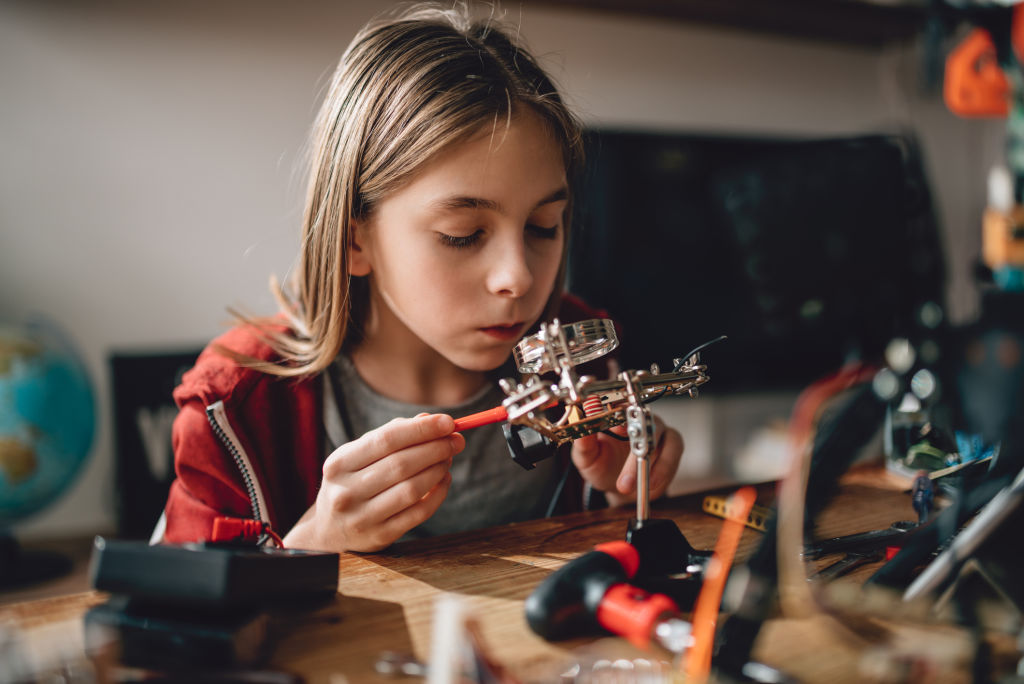Building connections in schools

Cooking classes, coding workshops, tennis lessons, soccer clinics, music lessons, drama classes; the choice of extra-curricular activities for preschoolers through to high school students grows each year. Supporting those activities are the many teachers, tutors, coaches and parents who understand the values and skills that those classes and workshops bring.
“Parents in particular are very aware that when they do these activities, children not only learn something new but they are socialising and developing emotions that will be important in the workplace – because workplaces are becoming more diverse, more multicultural and increasingly include people of different ages as people stay at work longer,” says Associate Professor Hernan Cuervo from the Youth Research Centre at the University of Melbourne.
“When children are at school all day, every day with the same group of kids they get used to dealing with those same kids and teachers. When they do something outside the classroom they are often with different children in a different environment and that adds to their learning of how to mange new contexts. That is on top of the new knowledge they also build in music, sport, art or science, depending on which activities they choose.” Practising piano scales, putting in extra practice to perfect a backhand stroke, or playing a team sport and losing a few matches also instil discipline, resilience and the importance of putting in effort to get results, says Associate Professor Julie Green, executive director at raisingchildren.net.au.
“Extra-curricular activities give children the opportunity to explore what they’re good at and developing a new skill gives children a sense of achievement and boosts self-esteem,” she says. “Balancing activities with school and home life also teaches children how to plan, manage their time and focus on set priorities.” The choice of extra-curricular activities has exploded in recent years. Associate Professor Cuervo says this reflects children’s changing interests and what kinds of skills parents think their children need to develop.
“I don’t think coding even existed as a word 20 years ago and when most people thought of robotics they probably thought of NASA. Now kids can do workshops in these areas. The popularity of cooking shows on TV has also seen a rise in cooking classes for children,” he says. But British research shows that a balance between study, before and after school activities and rest is important. The researchers found that families can sometimes feel pressured to keep up with other parents and students, leading to an over-packed extra-curricular schedule.
“We know parents are particularly keen to ensure their children get on in life,” said lead researcher Dr Sharon Wheeler of Edge Hill University. “Parents initiate and facilitate their children’s participation in organised activities as it shows that they are ‘good’ parents. They hope that such activities will benefit their children in both the short-term – by keeping them fit and healthy and helping them to develop friendship groups, and longer-term – by improving their job prospects. “However, our research highlights that the reality can be somewhat different.
While children might experience some of these benefits, a busy organised activity schedule can put considerable strain on parents’ resources and families’ relationships, as well as potentially harm children’s development and wellbeing. “Raising awareness of this issue can help those parents who feel under pressure to invest in their children’s organised activities, and are concerned with the impact of such activities on their family, to have the confidence to plan a less hectic schedule for their children.” Associate Professor Cuervo says children themselves are the best indicators of whether they may be doing too much. “Rest is important and children need time to play on their own terms and to explore at their pace.”
We recommend
We thought you might like
States
Capital Cities
Capital Cities - Rentals
Popular Areas
Allhomes
More







